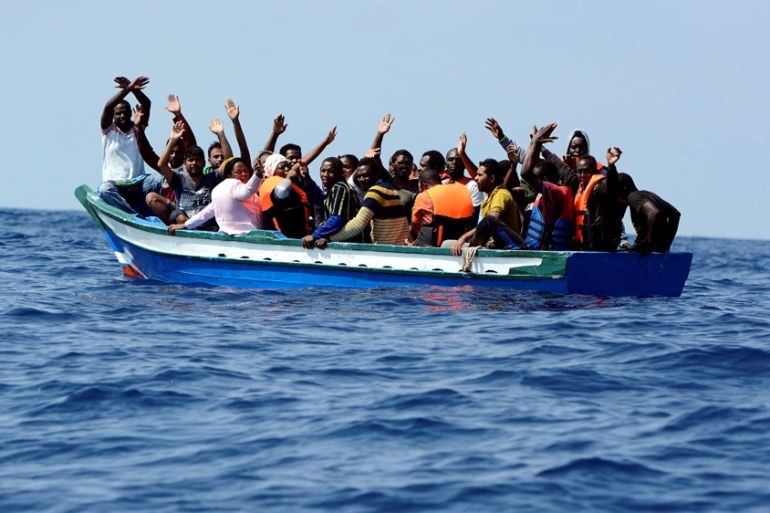Five EU countries agree new deal for migrants rescued at sea
People rescued in central Mediterranean to be sent to various EU states within four weeks, Malta summit agrees.

Interior ministers from five European Union countries have agreed a new scheme to distribute migrants rescued on the Mediterranean in a deal aimed at relieving the pressure on southern EU states.
The plan agreed in Malta on Monday will be presented to all 28 EU nations on October 8, with officials anxious to sign up as many states as possible and resolve one of the most contentious issues the bloc has faced in recent years.
Keep reading
list of 4 itemsUN report charts lethal cost of migration over past decade
Conflict, climate, corruption drive Southeast Asia people trafficking: UN
Bodies of three Rohingya found as Indonesia ends rescue for capsized boat
“We have started to make history but it all depends on the support of all or most of the other EU countries in accepting to participate in the disembarkation and distribution of migrants,” said Malta’s Interior Minister Michael Farrugia.
Farrugia was joined at Monday’s meeting by his counterparts from Italy, France, Germany and Finland, which holds the rotating presidency of the EU.
Details of the accord were not given but Italian Interior Minister Luciana Lamorgese said the idea was for rescued migrants to be sent to various EU states within four weeks of being brought ashore.
Those countries would then handle their asylum requests, welcoming them in if they met the requirements and organising their repatriation if they did not.
|
|
‘Obscene spectacle’
Italy and Malta have long complained they have been left alone to deal with hundreds of thousands of migrants who have crossed the Mediterranean in recent years looking for a better life in Europe.
“Details of the agreement are still to be disclosed, but we expect it to lead to the establishment of a reliable system to ensure that people rescued in the central Mediterranean are promptly and safely disembarked in Europe and that EU countries step up and share responsibility for them,” said Eve Geddie, director of the European Institutions Office at Amnesty International.
“We hope this mechanism will put an end to the obscene spectacle of people left stranded on boats for weeks waiting to know where, or even if, they can disembark.
“Speedier disembarkations are essential for those rescued in the central Mediterranean who have often already suffered horrific abuse in detention centres in Libya and a perilous sea journey – they are exhausted and in need of protection and care.”
EU leaders voted for a mandatory relocation of rescued migrants in 2015 but the plan was never adopted and only a handful of those picked up at sea were eventually given legal papers allowing them to go to other countries.
Countering propaganda
The influx helped fuel the rise of Italy’s far-right, anti-migrant League party, led by Matteo Salvini.
|
|
The League entered a coalition government last year and introduced laws blocking the country’s ports to migrant rescue ships, threatening the charities operating them with fines of up to a million euros ($1.1m) if they tried to dock.
Last month, Salvini unexpectedly pulled League out of the coalition in a bid to take power in a snap election. But the gamble backfired and a less radical coalition was formed and moved fast to try to forge a pan-European immigration deal to lessen tensions and deflate League rhetoric.
“The issue of immigration must no longer fuel anti-European propaganda,” Italian Prime Minister Giuseppe Conte said last week before talks with French President Emmanuel Macron, where the outlines of the new plan were discussed.
Monday’s accord aims to end a situation where migrants are stranded at sea on rescue boats while EU governments haggle over who should provide a safe harbour.
While around a dozen countries have, in the past, offered to take in the new arrivals, many central and Eastern European states, such as Hungary and Poland, have refused to help out, and they are not expected to sign up to the new deal.
It was not clear if the EU would offer financial incentives to encourage countries to sign up to the scheme.